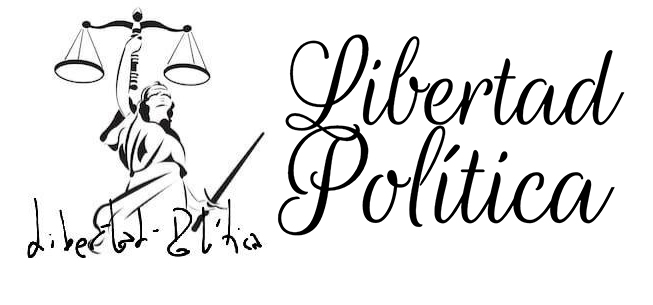(Main image, Mural “Liberacion”, Palace of Fine Arts, Mexico City).
The lost society and the path to cultural hegemony.
The fundamental fact that needs, for all those who want a true sociopolitical change, to arrive at a collective political consciousness and cultural knowledge in a society, is to know the society itself, customs, habits and above all character. I want to focus in this writing mainly on Spanish society, which is my native country and where I have grown up. Paying attention to both political and sociological slogans, an irrefutable reference that we can point to as the protagonist of Spanish life is appearance. Not only reference but also personal and individual value, at the moment in which any person walks out the door of his house, and in the political sphere because, the system requires it; first by the absence of Liberty Politics and, subsequently, at the time the device exists and is installed political consensus; all we see in plain sight in the media is an appearance that there is democracy or simply that there is politics or, that everything we see is real and true, and it is that the consensus is the negation for there to be política. Politics is a constant struggle for power, a power relationship, consensus precisely, is a transgression of principles for an agreement in conscience andSo avoid that struggle, liquidate that dissension necessary for politics to exist. So, everything we see in the political field in Spain is an appearance when we talk about politics because there is no Freedom Politics and there is consensus.This is also transferred to public life, that is, to the social field. Appearance marks such an important value in a personal way that, when it comes to being sure of oneself, a high importance has always been given to that of “what will they say”, in any place where other people, known and unknown can introduce yourself and get to know yourself, becoming even for some people a complex. We all know, apart from the sociological and psychology studies that we have regarding people and their relationships with their peers, that we know individuals or things according to and depending on how they are presented to us, when and where, thus that memory or that identification with that thing or that individual will be related to the knowledge of oneself according to the impression and according to the appearance of which we have been referring previously, from that moment of having known it.
With this reflection I have wanted to focus on the main message of the theme that this text that I want to expose is talking about, it is thecultural hegemony. The wordhegemony in terms of philosophy and sociology it comes from the Greek eguesthai, which means to lead, to be a guide, to be a boss and, also, from the verb eghemonerwhich means to guide, to lead, from what derives to command or to be in front; this word in general terms, we could define it, as the power or domination of society, culturally, that prevails in a given historical moment. A power that imposes its rules and wishes that it must be stronger than any other power.  Term that, until the work of Gramsci, (en la foto), the Italian philosopher, did not begin to be used in the cultural sphere. A concept that will be used as a synonym of cultural direction, in addition to politics, and that its conquest and development, according to the Italian philosopher, has to be developed, not from the established power of the Estado, but from within civil society. For the Italian philosopher, which implies acquiring in a society the cultural hegemonyit is to modify and change the order in the intervention of power in any area on the daily life of the individuals of that society and the transcendence of this in all its spheres that are relations of dominance. The concept ofhegemonyextends over a field greater than that of cultura in a society for his insistence on relating the social process to the distribution of power and influence on it. What happens in the concept of cultura is that the distinction between classes and the power of influence between them does not appear. One can only focus on the abstract plane the fact that men define and configure their lives; as in a society there are certain specific inequalities in the media and, therefore, to carry out this fact, what happens in Spain is that there is nocultural hegemony of any kind, because it’s a oligarquía, it is the parties who have thehegemonía of power, also electoral, especially the two most transcendental parties, but they do not have cultural hegemony; because the parties bother with propaganda and not with the instruction of what society is really lacking intellectually. There are three types of hegemony, cultural, power and electoral, in Spain, and following Gramsci’s discovery, although the work of the Italian philosopher in Spain is not applicable, since it is directed to the previous period of fascism in Europe and not to theelectoral system of proportion of lists which is the one in Spain, Gramsci addresses the parliamentary system; I write down this little detail in case there is any confusion about wanting to apply Gramsci’s work in Spain. As I say, following Gramsci’s thesis, the struggle to acquire this cultural hegemony,As the Italian thinker said, it has to be done from within civil society, and what happens in Spain? That everything is and belongs to the State, the media and all the institutions and, for that reason, it cannot exist hegemonía cultural, because radio, television and the press and all educational centers such as schools and universities are and are politicized by the state parties, which fight only and exclusively for one of the types of hegemony that there is, which is the electoral one.
Term that, until the work of Gramsci, (en la foto), the Italian philosopher, did not begin to be used in the cultural sphere. A concept that will be used as a synonym of cultural direction, in addition to politics, and that its conquest and development, according to the Italian philosopher, has to be developed, not from the established power of the Estado, but from within civil society. For the Italian philosopher, which implies acquiring in a society the cultural hegemonyit is to modify and change the order in the intervention of power in any area on the daily life of the individuals of that society and the transcendence of this in all its spheres that are relations of dominance. The concept ofhegemonyextends over a field greater than that of cultura in a society for his insistence on relating the social process to the distribution of power and influence on it. What happens in the concept of cultura is that the distinction between classes and the power of influence between them does not appear. One can only focus on the abstract plane the fact that men define and configure their lives; as in a society there are certain specific inequalities in the media and, therefore, to carry out this fact, what happens in Spain is that there is nocultural hegemony of any kind, because it’s a oligarquía, it is the parties who have thehegemonía of power, also electoral, especially the two most transcendental parties, but they do not have cultural hegemony; because the parties bother with propaganda and not with the instruction of what society is really lacking intellectually. There are three types of hegemony, cultural, power and electoral, in Spain, and following Gramsci’s discovery, although the work of the Italian philosopher in Spain is not applicable, since it is directed to the previous period of fascism in Europe and not to theelectoral system of proportion of lists which is the one in Spain, Gramsci addresses the parliamentary system; I write down this little detail in case there is any confusion about wanting to apply Gramsci’s work in Spain. As I say, following Gramsci’s thesis, the struggle to acquire this cultural hegemony,As the Italian thinker said, it has to be done from within civil society, and what happens in Spain? That everything is and belongs to the State, the media and all the institutions and, for that reason, it cannot exist hegemonía cultural, because radio, television and the press and all educational centers such as schools and universities are and are politicized by the state parties, which fight only and exclusively for one of the types of hegemony that there is, which is the electoral one.
What really marks the goal of thehegemonía cultural It is a more creative form of society, and intellectually capable with regard to the necessary knowledge to be able to solve the problems that occur and for its uncertain future on the ground.político y socito the. If what is intended is to cement and plant a hegemonía cultural alternative to the one that the established dominant power maintains at this time, it is necessary and precise, to establish an opposition or a war of positions, whose objective is to change the established values and knowledge, create a new collective consciousness inevitably, not of all, but of a majority number of people and, thus, lead that society to a new model and social order. Starting from this base and always from movements of the sociedad civil, it is about creating a new intellect associated with itsociedad civil, that starts from the base of the same individuals of that society with new proposals and demands. I mean, not just a class or status of a society, but promoted and including all classes. The only intention and objective of this message is to raise awareness and point out to society and not the way of thinking and its ideals, since that would be in the personal field, but basic principles and knowledge in the field of politics that less, nowadays, in Spain they are unknown, manipulated and misused, generally in weight of theclase estatalin the power. Nor is it about coming to power and dominating, it is about acquiring a significant result in the product of social action and its relationships in the public sphere, much more important than even coming to power, because this conquestcultural hegemonic It would not be a momentary temporary phenomenon, but rather one that guarantees the continuity of public awareness of society.
Every conquest or change inevitably leads us to a process. The process of conquering the cultural hegemony it would pass, not only through different situations naturally thanks to events, but also through certain phases. A process that, due to its nature, brings with it a high diffusion difficulty given the complicated nature of political and social affairs for understanding; In any case, I consider to adjective such a process from the beginning of citizen voluntariness, that is, that culture is not something that has to be sold, instilled or made to believe as if it were an ideology or an ancient religion, in any case, it has to be a conscientious and patient revolution. To talk ofhegemonía cultural, One of the principles that we have to find in people during dissemination is voluntariness, we speak of interest. Also another main value, that of responsibility, in such a way that this interest in knowing is the seed of the creation of the same individual consciousness, which through the relationships between individuals and the period of diffusion and conquest becomes collective. No one can be forced to learn anything from what is not at the disposal of their will, as it could be in the dictatorships of the 20th century in Europe and in Spain in the Franco regime, unless it is their personal interest that leads them to know the content of any subject; The same happens to us, naturally, voluntarily and conscientiously when we want to meet a person or not. Both in knowledge in relationships between people and in intellectual knowledge, it is an intentional fact of the mind of the human being, which allows that knowledge and knowledge to enter his mind and make him aware, and to know more or less about that content depending on the interest shown. In summary, I consider three principles so that this conquest of a revolutionary and cultural character can be achieved: the disposition, which is a third main value that refers to the aptitude taken in the face of what it is intended to instruct, voluntariness and responsibility. An example that I want to give so that it helps us understand what I mean by voluntariness, disposition and responsibility, we have it in that child at school, who refuses to learn, to acquire knowledge of any subject, because he does not like the subject or simply because he does not want to study, no matter how much he is forced, we will even cause the opposite effect, we do not expect that child to acquire any knowledge and, much less, awareness of the matter. Because if it is not voluntary and with the willingness of the person to acquire that knowledge, I consider that it would be somewhat imposed, forced or forced and we could also qualify it as an artificial conviction, which could even be confused with propaganda of any matter, because one thing it is propaganda and another is culture and knowledge; I mean that the individual has to have a predisposition for learning, says the American philosopher Humboldt, that the doors of the mind open from within.
¿We could say that today it existshegemonía culturalin Spanish society? No, we cannot say that there iscultural hegemony, today what can be called cultural hegemony In Spain, it belongs to the most important and well-known newspapers, television documentaries and “pink press” programs. What we can perceive in the media is not culture, it is called state propaganda. Not even in any institution, colleges, universities and schools, do they have the goal of maintaining or creating acultural hegemony,since they are state institutions, controlled and dominated by theCondition, politicized, and as we said at the beginning, it must be a revolution from thecivil societyand not from any state body or institution. Not even the internet could say that it is a medium where we can get acultural hegemony, it is not a suitable place for reflection or study, since forever and ever more, it is a dump of confusing varied content, ninety-five percent manipulated and false. It would not be a place to find the truth or discover it or to acquire knowledge, since the truth requires reflection, personal thought and attention, meditation, and the internet, it is a place of immediate passage, it is not a place where we put ourselves personally to reflect on our knowledge. Internet is a medium today, where we can use it for entertainment, a place to meet people, browse and at most, we will find a place or cultural space, like this one, where we can consult and learn something formally.
Returning to society, one of the main objectives would be to acquire in a large part of the individuals a homogeneous knowledge of the same basic concepts and terms in politics, that is, that any word and meaning is not explained in a different way by each individual, phenomenon that happens among the people of Spanish society very often with certain political terms and concepts, or rather with almost all of them.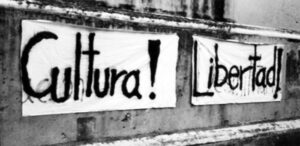 Talk then about hegemony it is to speak of a shared social cultural imaginary, and, furthermore, where all classes are involved. Addressing more specifically Spanish society, people, the street, as we have explained in other articles and as we can see throughout the historical events of the last almost one hundred years, especially since the Civil War, is a people subjected to authoritarian regimes, without knowing and having a knowledge of what it is to choose or decide absolutely nothing in the political sphere; We can all observe that it is a society that has taken on a personality of blind obedience and direct dependence on the power that submits it, a state of servitude, which becomes voluntary the moment any citizen approaches a ballot box to ratify the structure. of power that dominates him. The officiality of the Status, of the individual lordship of the different classes in their populations based on appearance, that appearance that we talked about at the beginning of the article based on the complex and the fear of “what will they say”. A society that, while coming from an ancient people and forged in its long cultural life, customs and historical events, instead today, and after such a long history, has become a mentally tough people to crack, with a closed mind and fixed ideas. It is only obedience to the institutions and means that sustain power, and then yes, from there the Spanish people are servile and obedient, but nothing curious with everything that is outside of what marks thestatus. An example that we could point to as regardshegemonía culturalin Spain it is the one that, through the church, the Franco regime, instilled and gave knowledge to individuals, today, as we have said before, thehegemonía cultural it has practically disappeared, there is no culture of anything. It cannot be the hegemonic culture of anything, since it is a society that does not really live or have collective or generalized cultural knowledge, among other things and mainly because it is a society that lives on individual, personal and particular beliefs, topics and compositions of place; where you live by opinion and not by criteria or definition and description, that is, each individual believes or thinks differently and independently about the description or definition of any concept, especially in the political sphere. Therefore, it cannot be the hegemonic culture, because for it to be, the same concept and term should be described by a large part or a majority of the individuals, being also aware of it. Imagine then, if the difficulty it has to direct and pretend that that child who does not want to study or does not like the subject, learns it, how difficult it will be to collectively raise intellectual awareness, in a society with a totally closed mind, servant and submitted to power, to the officiality of the State, saturated with vassalage and corruption, morally and mentally depleted, and with obedience as the flag of what is dictated from the dominant power by that of “what will they say” as Spanish society, that for that they acquire a public or political intellectual knowledge, that is, of what concerns themselves, generalized and admit it and, that they accept the fact that it is something of their necessary learning today, now new, is an arty task of complicated, but not impossible. A society that has been raped by its rulers for forty-three years, looted, subjected and, as we have just seen lately with the events of the viral alarms, with the use of masks and the exaggerated and unnecessary confinements, to such an extent that It is a society that prefers to kneel before the power that submits it, rather than safeguarding its business or its work; This is a fact, because in fact it is that thousands of businesses, from all sectors, have closed this last year.
Talk then about hegemony it is to speak of a shared social cultural imaginary, and, furthermore, where all classes are involved. Addressing more specifically Spanish society, people, the street, as we have explained in other articles and as we can see throughout the historical events of the last almost one hundred years, especially since the Civil War, is a people subjected to authoritarian regimes, without knowing and having a knowledge of what it is to choose or decide absolutely nothing in the political sphere; We can all observe that it is a society that has taken on a personality of blind obedience and direct dependence on the power that submits it, a state of servitude, which becomes voluntary the moment any citizen approaches a ballot box to ratify the structure. of power that dominates him. The officiality of the Status, of the individual lordship of the different classes in their populations based on appearance, that appearance that we talked about at the beginning of the article based on the complex and the fear of “what will they say”. A society that, while coming from an ancient people and forged in its long cultural life, customs and historical events, instead today, and after such a long history, has become a mentally tough people to crack, with a closed mind and fixed ideas. It is only obedience to the institutions and means that sustain power, and then yes, from there the Spanish people are servile and obedient, but nothing curious with everything that is outside of what marks thestatus. An example that we could point to as regardshegemonía culturalin Spain it is the one that, through the church, the Franco regime, instilled and gave knowledge to individuals, today, as we have said before, thehegemonía cultural it has practically disappeared, there is no culture of anything. It cannot be the hegemonic culture of anything, since it is a society that does not really live or have collective or generalized cultural knowledge, among other things and mainly because it is a society that lives on individual, personal and particular beliefs, topics and compositions of place; where you live by opinion and not by criteria or definition and description, that is, each individual believes or thinks differently and independently about the description or definition of any concept, especially in the political sphere. Therefore, it cannot be the hegemonic culture, because for it to be, the same concept and term should be described by a large part or a majority of the individuals, being also aware of it. Imagine then, if the difficulty it has to direct and pretend that that child who does not want to study or does not like the subject, learns it, how difficult it will be to collectively raise intellectual awareness, in a society with a totally closed mind, servant and submitted to power, to the officiality of the State, saturated with vassalage and corruption, morally and mentally depleted, and with obedience as the flag of what is dictated from the dominant power by that of “what will they say” as Spanish society, that for that they acquire a public or political intellectual knowledge, that is, of what concerns themselves, generalized and admit it and, that they accept the fact that it is something of their necessary learning today, now new, is an arty task of complicated, but not impossible. A society that has been raped by its rulers for forty-three years, looted, subjected and, as we have just seen lately with the events of the viral alarms, with the use of masks and the exaggerated and unnecessary confinements, to such an extent that It is a society that prefers to kneel before the power that submits it, rather than safeguarding its business or its work; This is a fact, because in fact it is that thousands of businesses, from all sectors, have closed this last year.
We are talking, as many of you know of arevolution, of a precisely cultural, peaceful change, since culture is the weapon of struggle to raise awareness, especially of some unknown political terms, such as thePolitical freedomand thedemocracy.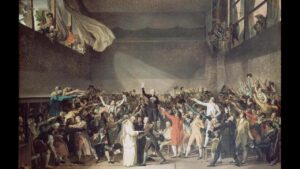 (In the photo a well-known image of the French Revolution). Concepts the two unknown, manipulated and misused, especially in weight of the state class and the partisan propaganda of theRégimen, not only in their pre-election rallies, but in all state institutions and media, which is intended to spread in Spanish society, since real knowledge in terms of these terms is the key and the way, first towards thatcultural hegemony, second thecultural revolutionand third, a physical conquest of the fact that these terms bring with them, so strange to Spanish society; fourth to reach the capacity of control of the governed to the governors through the exercise ofPolitical Freedom and through the form of government of democracy. Today, what I am writing for the Spanish people, according to those who do not understand it, or do not want to understand it, is something utopian and unrealizable, but it is just a cheap excuse so that nothing is ever changed and there is never anyPolitical Freedom ni democracy.
(In the photo a well-known image of the French Revolution). Concepts the two unknown, manipulated and misused, especially in weight of the state class and the partisan propaganda of theRégimen, not only in their pre-election rallies, but in all state institutions and media, which is intended to spread in Spanish society, since real knowledge in terms of these terms is the key and the way, first towards thatcultural hegemony, second thecultural revolutionand third, a physical conquest of the fact that these terms bring with them, so strange to Spanish society; fourth to reach the capacity of control of the governed to the governors through the exercise ofPolitical Freedom and through the form of government of democracy. Today, what I am writing for the Spanish people, according to those who do not understand it, or do not want to understand it, is something utopian and unrealizable, but it is just a cheap excuse so that nothing is ever changed and there is never anyPolitical Freedom ni democracy.
Another factor that predominates in Spanish society, apart from those that we have indicated above, is that of theafraid. Caused after decades of repression and the absence of freedom, it has embedded itself in society, forming solid and gender roots that are constitutive of its customs and habits; is he afraid a factor that has been spreading the Spanish people both from the rulers to the ruled, and from society itself to itself. This is a topic, which would need a separate article, and I only want to write it down because it is real and to say that it is fear and cowardice of the unknown that individuals, naturally in the human being, prevent them from taking a step forward and discovering new horizons and other goals. That is why a cultural revolution is necessarily necessary, and to achieve a cultural hegemony, because it is a solid and effective weapon against the unknown and to combat thatafraid. Once these knowledge are acquired, with which an awareness of them in the public domain, now is the time to launch and take the step into the unknown, to conquer thePolitical Freedom, which today is buried under the fears and confusion of the terms and concepts of Spanish society.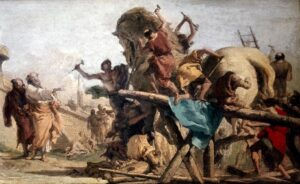 (In the image, cultural hegemony, stereotypes and human labor).
(In the image, cultural hegemony, stereotypes and human labor).
The task of dissemination and instruction to carry out acultural revolutionand thus reaching an intellectual hegemony, today in Spain has some drawbacks, but among them I want to point out two of them that are the most relevant; It will be a very difficult task, especially when it comes to spreading it in a society that voluntarily and without any criteria is subjected to the media and state propaganda, both from political parties and official institutions of theafraid, radio, television and press; is to transmit the content so that millions of people change their minds regarding the political functioning and its reality from the precision of science and philosophyand, to make individuals acquire new knowledge of unknown character until today, being also terms and concepts as united and related to the individual’s own morality and personality as are those of a political scope. I recognize that if I were not aware that it is possible and did not trust it, I would not waste another second in the cause. Another impediment and inconvenience for that struggle and conquest of thecultural hegemony get ahead is the condition of the regime and the power structure. I am referring to the functionality of the political system, which drags the entire population behind it to the obedience and submission of the officiality of theafraid. There is no institution, neither the radio, nor the television nor the press that does not depend on the afraid, since they are tools of this for the pure propaganda of the electoral programs of thestate parties del Régimen. Nor are they the schools or universities, which no longer dedicate themselves or care to facilitate or pave the way of culture, today it is no longer taught in schools, it is indoctrinated and it is intended to educate, something that belongs to the family field and spiritual; All the information is redirected and there is no free learning option, nor is the talent or intelligence of those who have it strengthened in the different subjects. Another drawback, this, more in a personal way, is the curious phenomenon ofinnate wisdom, that individual who despite his lack of culture and ignorance in the matter, believes he knows about it, or about any subject that is exposed and it is therefore impossible for that person to open his mind to acquire new knowledge and wisdom. Believing in personal topics, beliefs and compositions of place about what happens to us and concerns us in our day-to-day political life is an anomaly, a disease, which we could very well associate with a complex, a defect calledsíndrome de Dunning Kruger (recreacion pintoresca en la imagen), which consists of the belief of knowing more than what is really known, this fact makes the person convinced that what he says is true, that is, the less he knows, the more he believes in knowing. Trying to explain something to this type of person can be a chaos and an enormous effort, because the mind is something of oneself and wanting to know and know, as we said before, corresponds to personal interest and will; If what we are thinking is that we already know, thedisposition, that is, the aptitude to know, we are eliminating it de facto. I will also speak, without leaving aside another inconvenient phenomenon when it comes to opening the mind and learning about knowledge, that is the afraid, fear that, scattered and propagated by the Regimeand its institutional arms, the population suffers before every political event. Spanish society has believed itself to be free with freedoms and rights granted, it is customary to suffer fear, it is common after so many decades, almost a century of mental repression, suffered by the Spanish people under authoritarian regimes. fear has been the protagonist of the day-to-day life of individuals in Spain, to such an extent that at the present time as a nation suffers a great malaise of an unhappy society and the loss of its own identity as a nation, driven by partisan ambitions that are not its concern, since these belong and are due to the Condition and not to
Believing in personal topics, beliefs and compositions of place about what happens to us and concerns us in our day-to-day political life is an anomaly, a disease, which we could very well associate with a complex, a defect calledsíndrome de Dunning Kruger (recreacion pintoresca en la imagen), which consists of the belief of knowing more than what is really known, this fact makes the person convinced that what he says is true, that is, the less he knows, the more he believes in knowing. Trying to explain something to this type of person can be a chaos and an enormous effort, because the mind is something of oneself and wanting to know and know, as we said before, corresponds to personal interest and will; If what we are thinking is that we already know, thedisposition, that is, the aptitude to know, we are eliminating it de facto. I will also speak, without leaving aside another inconvenient phenomenon when it comes to opening the mind and learning about knowledge, that is the afraid, fear that, scattered and propagated by the Regimeand its institutional arms, the population suffers before every political event. Spanish society has believed itself to be free with freedoms and rights granted, it is customary to suffer fear, it is common after so many decades, almost a century of mental repression, suffered by the Spanish people under authoritarian regimes. fear has been the protagonist of the day-to-day life of individuals in Spain, to such an extent that at the present time as a nation suffers a great malaise of an unhappy society and the loss of its own identity as a nation, driven by partisan ambitions that are not its concern, since these belong and are due to the Condition and not to
Nation; and the fear of the unknown, Spanish society, as that old saying goes, prefers the bad known to the good to be known, an authentic nonsense that can only lead to failure and the voluntary servitude of individuals..
Naturally and, after the political experience in which Spain and the rest of Europe immersed, the events and trajectory of the last 50 years ago, everything leads to the fact that a necessary and irremediable change is had and must be given, although people do not they know it, they are not interested in talking about it, it seems to them Utopian and even deny it.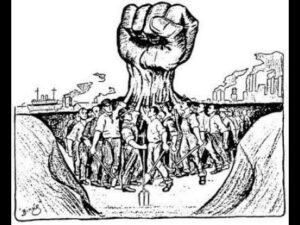 Only after a rigorous knowledge and study of history and facts, and above all from the French Revolution to the present day, will it be possible to perceive that change and revolution today is closer than we can believe and that is, when a regime For example, the one of 78 ”in Spain, it is broken, rotten with corruption, destroyed because it can no longer bear the tremors of the lie that it carries with it and that infinite corruption of all the institutions and leaders of the state class, accompanied by a moral corruption of the people who ratify it at the polls, and we are not only talking about material corruption, but also moral corruption, the change must inevitably occur sooner or later; Spaniards, at least, must know and be aware of it, and also be prepared and instructed when that time comes. The h
Only after a rigorous knowledge and study of history and facts, and above all from the French Revolution to the present day, will it be possible to perceive that change and revolution today is closer than we can believe and that is, when a regime For example, the one of 78 ”in Spain, it is broken, rotten with corruption, destroyed because it can no longer bear the tremors of the lie that it carries with it and that infinite corruption of all the institutions and leaders of the state class, accompanied by a moral corruption of the people who ratify it at the polls, and we are not only talking about material corruption, but also moral corruption, the change must inevitably occur sooner or later; Spaniards, at least, must know and be aware of it, and also be prepared and instructed when that time comes. The h
cultural hegemony It is not something that can be seen overnight, nor can it be a phenomenon that is taxable, we remember the three principles that I indicated above, will, disposition and responsibility, no matter how much change brings about, all change takes a process; Unless they are dictatorships or other authoritarian regimes like the one we have in Spain, which through repression and fear , serve as fuel for the functioning of the entire governmental structure and the promotion of its ideas and intellectual plans for society, in the dictatorship it was done by force, and today, in the Party State that has existed as a form of government for 43 years, it is carried out through lies and the mental confusion of the citizen.
As we have pointed out at the beginning of the article, if we talk aboutcultural hegemony, We must speak of voluntariness, that the mind will have been intentionally to acquire such knowledge; It is also essential the disposition, that is to say, the aptitude of the individual, so that the instruction and the acquisition of that knowledge is not confusing and arrives in a clear and understandable way without having to be a scholar; and responsibility, so that it can be precisely hegemony and is preserved as a collective culture, of the nation, of the people, and thus it can become conscience as well.
What can we do or how can we get there to achieve a cultural hegemony ?I say, do not rush, study and attend to events, what surrounds us, the nature of things and phenomena that directly influence society and the individual.
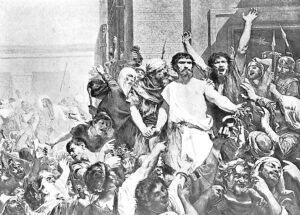
(In the picture Barabbas leading the masses of Jerusalem who showed indifference to Christ, represents the false teaching and false propaganda and opportunism that ambition brings.ón of fame, power and money, at that time of change, false messiahs were common)
“The product of a false and misguided struggle for Liberty it is the confusion, misrepresentation, corruption and adulation of false messiahs that will lead us to failure”. Un blunder some people make when it comes to understanding what the hegemonía cultural and carry out the diffusion of matter is precipitation. The cultural hegemony it requires a process, a period of time in which the populations, small municipalities and localities, reach by themselves that interest in knowing and being aware of what they want to change. Those regions or neighborhoods and areas of the national territory, and not all at the same time, will be the ones who will acquire through their neighbors, from house to house, from neighbor to neighbor, from ear to ear, that knowledge and thus recognize and identify it and square it in your mind. It must be a fact of mutual trust between the residents of that town, a common plan after the experience and experience of political and social events. It is another mistake, I also consider it reckless, to make any passerby on the street understand or try to explain in a deep and explanatory way, everything can generally remain in a simple bar counter talk, and more if we recognize and are aware of the terrible situation In fact, everything can end at least in an ideological discussion or in those directions, although it can always be that there is some exception of some passerby interested in knowing what it is about, but nothing more, pure temporary curiosity; thecultural hegemony We have said that it carries with it disposition and responsibility. Another typical, erroneous and informal way is the street proclamation, the shouting and the announcement with a megaphone of the idea and cause; I categorically deny that this impertinent, scandalous and annoying way of showing and informing the individual of cultural knowledge and knowledge bears fruit, it is the way of presenting the idea that has to interest us the most, as we said at the beginning about appearance, we are going to to rescue that concept, the presence and appearance of oneself, those street demonstrations and mobilizations with loudspeakers, which only induce and produce breaking the tranquility of the street, tranquility that by the nature of the moment, is conspicuous by its absence. The situation, if we only pay attention to the moment and situation that we have in Spain, after past confinements and cuts in individual freedoms and rights, the one who goes out today for a walk in the street, either daily or during rest time It is to make your plans, take the air, breathe in the fresh air and enjoy your time, although lately some people have voluntarily made the decision not to do it by wearing a rag or a ridiculous mask on their face. Returning to the subject, I want to remind you again about the forms and manners to present the cause. It is not a question of giving a list of points to follow, because it is not a symmetrical and mechanical issue, but it takes the aspect as a chemical formula, because when it comes to people and their morals and interest, mixed with the arrival of new social events, we will be able to determine the result of the disposition for the diffusion of ideas and the predisposition to the knowledge depending on the reaction of this mixture; What should not matter even more is first the way to present what we want and know the nature of the place where you are going to do it, that is, know the terrain, the people and premeditate their reaction to the idea. In a careful, formal and attentive way to those people who will be the ones who will be interested or not, depending a lot on how we present it to them. Like humans, people know other people according to the place and the ways in which they are presented to us, this is how the relationship with that individual will mark us in the future, in the field of ideas the same thing happens and happens. Imagine, that on any day of rest, when almost all or a majority of the individuals in the area are resting, a group of people with loudspeakers and megaphones appeared and began to shout in the outskirts of the area, shouting who knows what , that perhaps the message is true, but the forms and ways, and more when it comes to showing and teaching something as relevant in public life as is the Liberty In capital letters and in the singular, I question and wonder that these individuals in the area, lend the slightest intention of will to even know what the matter is about, just like any passerby, although it can always be that by curiosity and not with responsibility and disposition, which are basic principles forhegemony, pThey can lend to the knowledge of the cause; And everything is, that a neighbor does not cross the nerve and they have to run away with megaphones and gear included, or simply that any police officer cuts the joke on them. Breaking the peace and tranquility of a place is not action, it is not a fight, it is nothing more than provoking the rejection of the cause and thus its dissemination and the impossibility that, at least, in that place it already has or will be interested again for any idea, that is, an effect of rejection and indifference of what is intended to be reported is caused.
What I want to point out so that my message and reflection can be understood by anyone, is that we must attend to the moment and, thus, act depending on the moment, the people and the situation of the place; They are factors to study beforehand before launching into any mobilization or demonstration in public places. If what we are saying is that there is no hegemony, then we must bear in mind that there is no awareness of the cause, it is not identified by any means by a majority, so any manifestation in the street is useless at this time of non-knowledge and lack of culture of the idea and concepts that are intended show, that is, the idea is not identified, nor will it be possible for that message to be understood by almost anyone. Which, can cause opposite effects as we said, rejection, indifference, non-disposition, confusion, misrepresentation of the idea of movement and is to confuse more than what is already previously, or simply get confused and make a mistake with another cause that is not the one that is intended to indicate.
Is heCondition something that any movement can underestimate? I don’t think so, and even less so in these moments of decline in its functionality that are caused by necessity of the very nature of the institutions and the governmental sphere, in a terrible situation like the current one, the strong abuse repression of the people, beginning with cuts in freedoms and rights and coercion and force from the agents of the authority, the police and the Civil Guard. As it is a conquest, and it is a conquest on the fringes ofCondition, because it is precisely from Conditionfrom which we must protect ourselves, be aware that the cause harms as is obvious to theCondition; do not doubt then, that many demonstrations are dissolved, confused or manipulated by the media on the spot. As I say, it is not entirely effective to fight for a cause when it comes to fighting with a thousand times greater power. On the other hand, when we talk about when and when and, if we talk about the fact that a minimum of knowledge has been acquired, not in all places, but if this phenomenon is noticeable, wherever it is, the idea of going out to the street and demonstrate, wherever the cause and idea is identified, not by everyone, but by a notorious majority.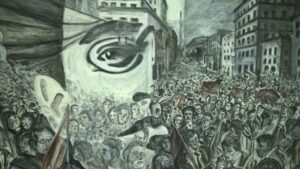 A recognition of the content of the manifesto by a part of the people is required, so that it does not produce rejection or confusion; When there is a minimum of awareness of what is intended to be taught, then we could start talking about exits and manifestos in the street. Do not pretend, those deluded, that a demonstration of a few hundred people causes or stimulates awareness of something, because what it will cause will be to make a fool of yourself in the media.Condition.
A recognition of the content of the manifesto by a part of the people is required, so that it does not produce rejection or confusion; When there is a minimum of awareness of what is intended to be taught, then we could start talking about exits and manifestos in the street. Do not pretend, those deluded, that a demonstration of a few hundred people causes or stimulates awareness of something, because what it will cause will be to make a fool of yourself in the media.Condition.
After having pointed out some of the precautions that, in my opinion, should be taken when bringing to society thecultural hegemony, the of the Political Freedomand the democracy In this case and, taking into account the character of Spanish society, that rude and firm character of his ideas, ideas that come from the servile custom of the people before him.Condition,Considering the current situation after more than a year of confinements and cuts in freedoms and rights and altered social repression, I want to point out, apart from the forms and the moment, also the nature of the forms; I mean the neighborhood trust. That the idea be presented among residents of small towns, where everyone knows each other, neighborhood blocks, urbanizations and neighborhoods, family and friends from daily life, so that the will of the individual is the protagonist of the event, in any way the flag may be the cause, whatever the idea, because then we will be talking about whether or not it is accepted. We can determine this mixture through real events such as: the pure will and interest, the predisposition, which also in a certain degree of discretion, the formality of the acts, the reality of knowledge and knowledge, the need for the cause, the reaction to events and the individual disposition, the call to the presentation, the virtue in the moment of the moment, the non-precipitation, as I say, are factors and values necessary to face this task of thecultural hegemonycultural hegemonyCollective Political Freedomand of theformal democracy As a form of government, we have to go, but let the volunteers and interested parties come, with a personal predisposition, to acquire the knowledge of this. To think about how the cause is presented, as necessary as we know and we who know it are aware, for society, whether it is accepted by the people or not, in this labyrinth of confusion, fear, pride and ignorance and, the presence of beliefs and topics that lead nowhere. You can then turn on a light in each corner, no matter how small it may be to see. I want to remember that, in the most difficult and final moments, we will find false messiahs proclaiming freedom, opportunists of the decadent moment, to take with them a slice of what is left of the scavenger-looking pie. Preachers and revealers of the truth, heralds of the good news, or simply we can find an ambition for fame and recognition in the struggle to reach thecultural hegemony, In fact, thecultural revolution that is intended.
Antonio HR, 1 de mayo de 2021.
